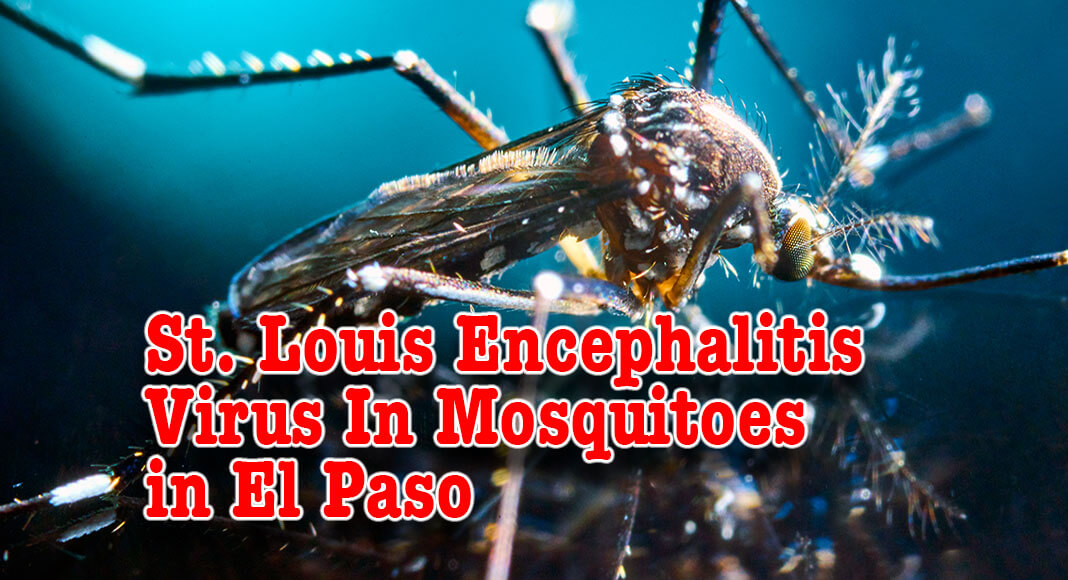
Mega Doctor News
EL PASO, Texas – The Department of Public Health (DPH) confirms that State officials have identified the first pools of mosquitoes carrying the St. Louis Encephalitis (SLE) virus in El Paso County.
The SLE virus was found in a group of mosquitoes collected from traps set by the Environmental Services Department- Vector Control in the 79925 and 79907 zip codes. Public Health officials and Environmental Services-Vector Control urge the public to take precautions and protect themselves from mosquito bites.
“Vulnerable populations for COVID-19 are some of the same individuals who could be affected greatly by diseases transmitted from a mosquito bite,” said City-County Health Authority Dr. Hector Ocaranza. “We need to be vigilant and proactive in order to prevent mosquito breeding and mosquito bites. With this finding, it is important that people remove standing water around homes and protect themselves from mosquito bites.”
The City of El Paso Department of Public Health (DPH) has also received its fourth confirmed severe case of the West Nile virus in the community. A man is his late 40s with underlying medical conditions, was confirmed to have contracted the Central Nervous System West Nile Virus (WNV) disease and has been released from the hospital.
Human infection is the result of bites from infected mosquitoes. Mosquitoes become infected when they feed on infected birds, which circulate the virus in their blood. Symptoms of West Nile include fever, headache, tiredness, body aches, nausea, vomiting and swollen lymph glands.
Officials will continue monitoring and testing mosquitoes for the SLE virus and other viruses transmitted by mosquitoes. Similar to the West Nile virus, birds are the reservoir host once exposed to a mosquito with SLE. Humans are a dead-end host and are unable to infect other humans through casual contact.
Severe illness can occur in people of any age; however, people older than 60 years of age are at greater risk. Symptoms are also similar to West Nile and include high fever, stupor, coma, vision loss, headache, disorientation, tremors, muscle weakness, neck stiffness, numbness, convulsions, and paralysis.
Residents can report standing water and mosquito breeding by calling (915) 212-6000. For more information and tips visit EPHealth.com under the Emergency Preparedness Be Climate Ready tab.










